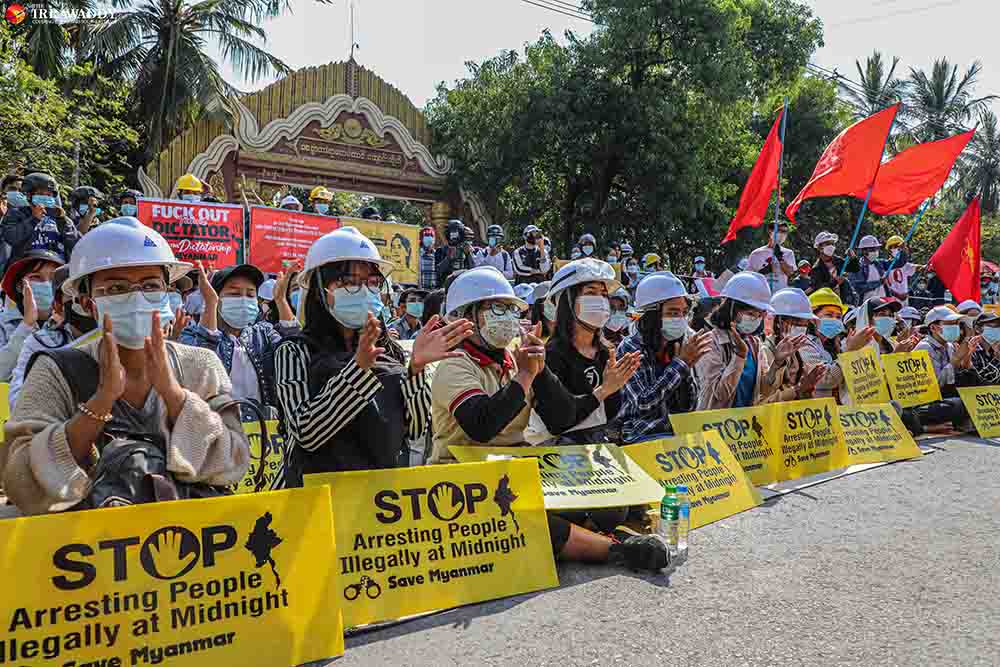|
Has the Myanmar military miscalculated by cutting the Internet?
The United Nations issued a watered-down statement on the military actions being taken to destroy democracy and intimidate the population in Myanmar / Burma. “The world is watching,” the statement ended. But the world is doing nothing as the military continue night-time arrests, removes legal restraints that protected privacy, and ratchets up provocations that become excuses for use of force “to restore order.” Since the coup before dawn on February 1 hundreds of thousands of citizens have marched daily in as many as 500 cities and towns. No doubt the coup leaders expect these marches to cool down. But a nighttime curfew has provided cover for the military to send squads to people’s homes to arrest those who participated in the protest marches. The new regime has rescinded twenty-year old privacy laws, so the “authorities” can now act without bothering to get a court order to break into homes without warning and arrest anyone without specifying cause, and then hold those detained for indefinite periods. [The picture accompanying this blog is of students in Mandalay on Valentine’s Day protesting the midnight arrests, from Irrawaddy.] Not only marches, but other forms of protest have taken place, including work stoppages. The most famous was by physicians and medical staff who wore red ribbons of the pro-democracy movement and refused to handle any but emergency cases. Doctors were then rounded up in nighttime raids. A “general strike” beginning on February 10 continues, closing banks, hospitals, businesses, transportation, and even government services. The object of the arrests, of course, is to intimidate protestors and to acclimatize the population to the re-imposition of military rule. On 8 8 88 (Aug 8 1988) a massive uprising in support of democracy began a movement that led a month later to military response leaving between 3000 and 10,000 dead with many more missing. This has been a constant reminder to people in Burma that the military has guns and will use them. But the disruption of Internet communications, in order to control access to news of the protests, has also destroyed businesses that were being conducted via the internet as COVID-19 closed in-person operations. Young people of the IT generation are the most adept at transforming their income sources to work online. Panda, a company that provides home deliveries of products which people order, has been ruined, according to the Irrawaddy newspaper. Thousands of young people have been thrown out of work for this and other delivery services, along with the companies and stores depending on orders coming by the Internet. Scores of other new commercial enterprises are going out of business. What this means in political terms is that the livelihood of a massive number of people has been harmed. In Burma people can tolerate a level of suppression of public and personal freedom unbearable by people in many other countries, but destruction of their livelihood will put the military under pressure they have never had in modern times. “You messed with the wrong generation” became the message of the week to the junta regime (two terms declared illegal on Monday). In response, the regime has moved military hardware onto the streets back into plain sight. It is a dangerous time to be in Burma if both the masses of the young and the military each decide they have nothing to lose.
0 Comments
Leave a Reply. |
AuthorRev. Dr. Kenneth Dobson posts his weekly reflections on this blog. Archives
March 2024
Categories |
| Ken Dobson's Queer Ruminations from Thailand |
|

 RSS Feed
RSS Feed
